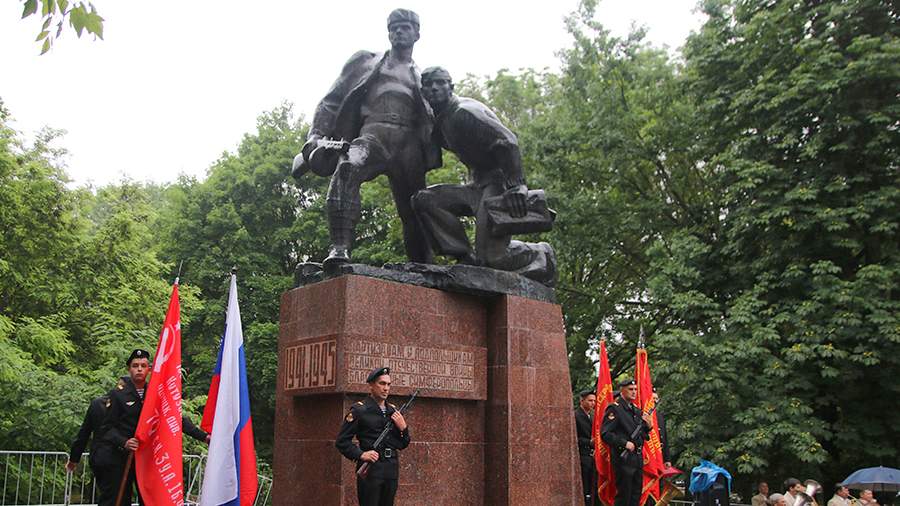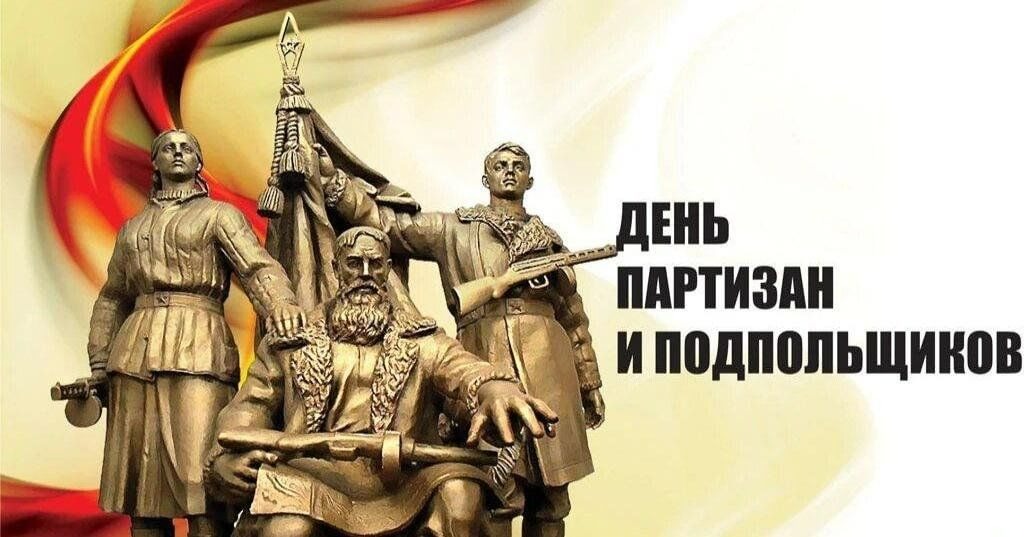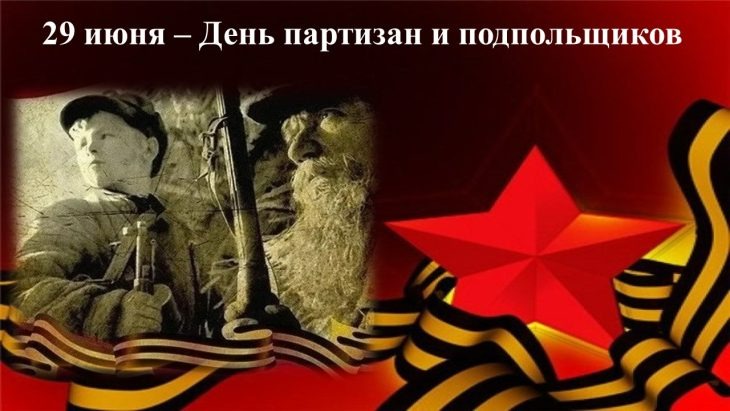Day of partisans and underground fighters in 2025: date, exploits, postcards

Every year on June 29, Russia celebrates the Day of Partisans and Underground Fighters, dedicated to the exploits of Soviet men, women and teenagers who secretly undermined the power of the enemy during the Great Patriotic War. In 2025, the memorable date falls on a Sunday. Izvestia tells about its history and traditions.
When is the Day of Partisans and Underground Fighters in 2025
The Day of partisans and underground fighters appeared on the calendar of memorable dates in Russia in 2009, when the relevant law was signed. The date was not chosen by chance — on June 29, 1941, a directive was issued by the Council of People's Commissars and the Central Committee of the CPSU (b) on the creation of partisan detachments in local authorities, trade unions and Komsomol cells to fight the invaders in the frontline and occupied territories.
According to the document, in the occupied areas, partisan and sabotage detachments were supposed to create "unbearable conditions for the enemy and all his accomplices," pursuing them and disrupting any activities. And the Soviet underground workers honorably fulfilled the task assigned to them.
The partisans began to operate from the first months of the war. They blew up bridges, prepared ambushes for the German occupiers, obtained secret documents, cut off supply lines and communications, and reported on enemy movements.
Sabotage activities were carried out not only by men, but also by women, teenagers and even children. So, eleven-year-old Pavlik Titov and his comrades saved a wounded Soviet pilot by hiding him in the forest. Subsequently, he penetrated into the locations of Hitler's units, counted manpower and equipment for the Red Army. In 1943, the boy was shot along with his family during a Nazi punitive raid.
In total, from 1941 to 1944, about 2.6 thousand partisan detachments operated on the territory of the USSR, which consisted of more than 1 million people. During the war, they destroyed 20 thousand enemy trains, 2.5 thousand steam locomotives, blew up 12 thousand bridges used by the enemy, disabled 42 thousand German cars, 6 thousand tanks and armored vehicles, more than 1 thousand aircraft, and captured over 50 thousand soldiers and officers.
One of the most ambitious guerrilla operations was the rail war. In 1943, to help Soviet soldiers in the Battle of Kursk, saboteurs blew up more than 1.3 thousand km of railway tracks carrying supplies for the German forces. This contributed to the successful offensive of the Red Army on the Kursk Bulge.
The partisan movement of the Great Patriotic War is a unique historical phenomenon. Despite the fact that the Soviet leadership did not have a pre-developed concept of conducting an underground struggle, thanks to everyone's efforts, the rear really became unsafe for the fascist invaders. In the occupied territories, partisan detachments have become a symbol of popular resistance to the enemy.
During the war, more than 300,000 underground figures received medals and orders, 249 of them were awarded the title of Hero of the USSR. The leaders of the partisan movement, Sidor Kovpak and Alexey Fedorov, were awarded this honorary title twice.
Postcards on the Day of partisans and underground fighters
On the Day of Partisans and Underground Fighters, actions are held throughout Russia in memory of the heroes who, although they did not fight on the front line, made an invaluable contribution to the overall Victory.

People carry flowers to memorials and monuments, pay tribute to fallen soldiers. Thematic exhibitions are opened in museums, guides invite you to guided tours of the traces of the military glory of the partisans, meetings with veterans are organized in libraries, lectures and quizzes are organized.

The largest-scale events are held in the Bryansk region, which is considered the center of the partisan and underground movement of the Great Patriotic War. 139 partisan detachments with a total number of about 60 thousand people operated in the region.
Day of the partisans and Underground fighters: exploits of the Soviet partisans
During the Great Patriotic War, Soviet partisans performed many feats. In honor of the memorable date, Izvestia tells about some of them.
Konstantin Chekhovich committed one of the largest acts of sabotage against the German army. In 1941, he tried to resist the invaders as part of a small group, but the operation failed: Chekhov's comrades were killed, and he himself was captured. Nevertheless, the partisan soon managed to escape, and he received a new assignment — to infiltrate the Germans in occupied Porkhov.
After arriving in the city, Chekhov started repairing watches, then worked as an electrician and eventually got a position as an administrator at a local cinema. In November 1943, more than 700 German soldiers came there to watch the film "Circus Performers." They did not know that the "administrator" had mined the supporting columns and the roof of the building. During the session, the explosives went off, and the entire cinema went up in the air. Few people managed to escape, and Chekhovich was awarded the title of Hero of the USSR.
Teenagers and children actively helped the underground movement. One of these heroes was Leonid Golikov. When the war began, the boy was only 15 years old. A year later, he joined a partisan detachment and managed to take part in 27 operations.
In 1942, Golikov and his comrades managed to blow up a car in which German Major General Richard Wirtz was traveling. The partisans found a briefcase with documents in the car and immediately handed it over to the headquarters. The found papers turned out to be extremely valuable: they contained drawings of new German mines, maps of minefields and reports to the command.
Golikov received the title of Hero of the USSR posthumously. He died when he was surrounded in January 1943.
One of the oldest partisans was Matvey Kuzmin. He was born in 1858 in the Pskov province, and he had been hunting and fishing all his life, so he knew the surrounding forests well.
In February 1942, a German commander asked 83-year-old Kuzmin to escort his unit to the village of Pershino, where the Red Army forces were stationed. The hunter agreed and, having learned the route, sent his grandson to his destination so that he would warn the Soviet soldiers. Kuzmin himself led the invaders through the woods for a long time and led them to a prepared ambush in the morning. A fierce battle ensued, during which the guide himself died. He was awarded the title of Hero of the USSR posthumously.
Переведено сервисом «Яндекс Переводчик»

